Behind the Line
Anne Nguyen, Malik Djoudi, Joris Avodo Production 2024 – Duration: 50 min – All audiences Executive production: Le Carreau du Temple
> VIEW PROJECT PRESENTATION ON LE CARREAU DU TEMPLE’S WEBSITE (FR) <
Behind the Line questions the notion of limits crossing. It builds upon the idea of the line as a symbol of the limits imposed upon us from outside, as well as a symbol of the norms that define us and the success goals that we set for ourselves.
On an original score by Malik Djoudi, choreographer Anne Nguyen introduces two groups of dancers on stage. Those two groups’ identities and journeys seem to reflect contradictory visions.
The first group involves four dancers descended from the African diaspora, whose movements stem from the coming together of tradition and modernity, constantly reinvented by the youth of the big cities: urban dances. Amongst them, two krumpers, one woman and one man, represent urban dances from the Afro-American heritage, whose inheritance emanates from the consequences of slavery and segregation. A their side are two African traditional and urban dancers, who represent urban dances of African origin, like coupé-décalé from Ivory Coast or mbolé from Cameroon, which are the product of the African rural exodus in the face of modernity.
Alongside those dancers, four children and adolescents, amongst them one girl, who come from a traditional Idaatcha village from the Collines department in Benin, are performing. They all practice both local traditional dances and breakdancing, which is the ultimate symbol of modernity, and that they’ve learned from dancers coming from different horizons, such as choreographer Anne Nguyen.
In the face of globalization, how do people appropriate the rules? What is the place for tradition in a hyper-modern world? Should it fade away, aggregate, creolize, compartmentalize? The eight dancers in Behind the Line demonstrate that there isn’t one unique way to deploy one’s identity in order to surpass oneself and move beyond limits, whether material or immaterial. But must one necessarily tend towards success and passing limits? Is the notion of culture compatible with a large-scale society in which the rules are the same for all? In our relentless race forward, aren’t we all losers?
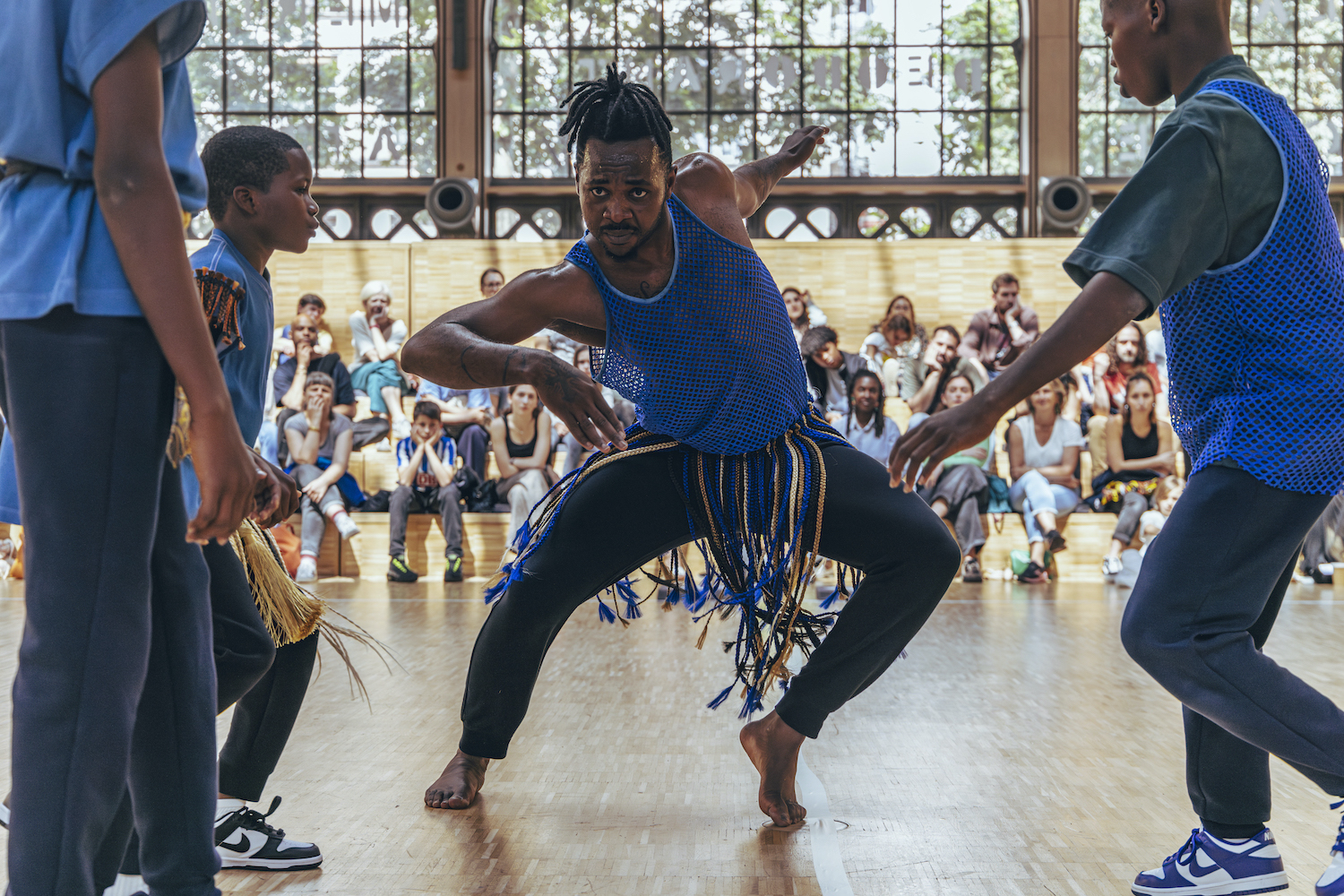
CAST
Conception/ writing: Anne Nguyen, Malik Djoudi, Joris Avodo Choreography: Anne Nguyen Original music: Malik Djoudi Musical research: collaboration with traditional artists from Camaté-Tchakaloké (Benin) Dramaturgy: Joris Avodo Artistic adviser: Didier Boko Coordinator association Irilojù: Sylvestre Otta Costumes: Ludivine Maillard Lighting design: Sébastien ArtaudPERFORMERS
– Urban African dances and krumping: Mark-Wilfried Kouadio aka “Willy Kazzama”, Joseph Nama aka ”Jo Kiero”, Tony Ndoumba aka “Tonynoscript”, Emilie Ouedraogo aka “Lady Madskillz” – Les “Enfants des Collines” – Association Fondament’ALL (Champigny-sur-Marne) and Association Irilojù (Camaté-Tchakaloké, Benin): Fréjus Attoukou, Jean Gbadi, Salomon Gbadi, Assiba Otta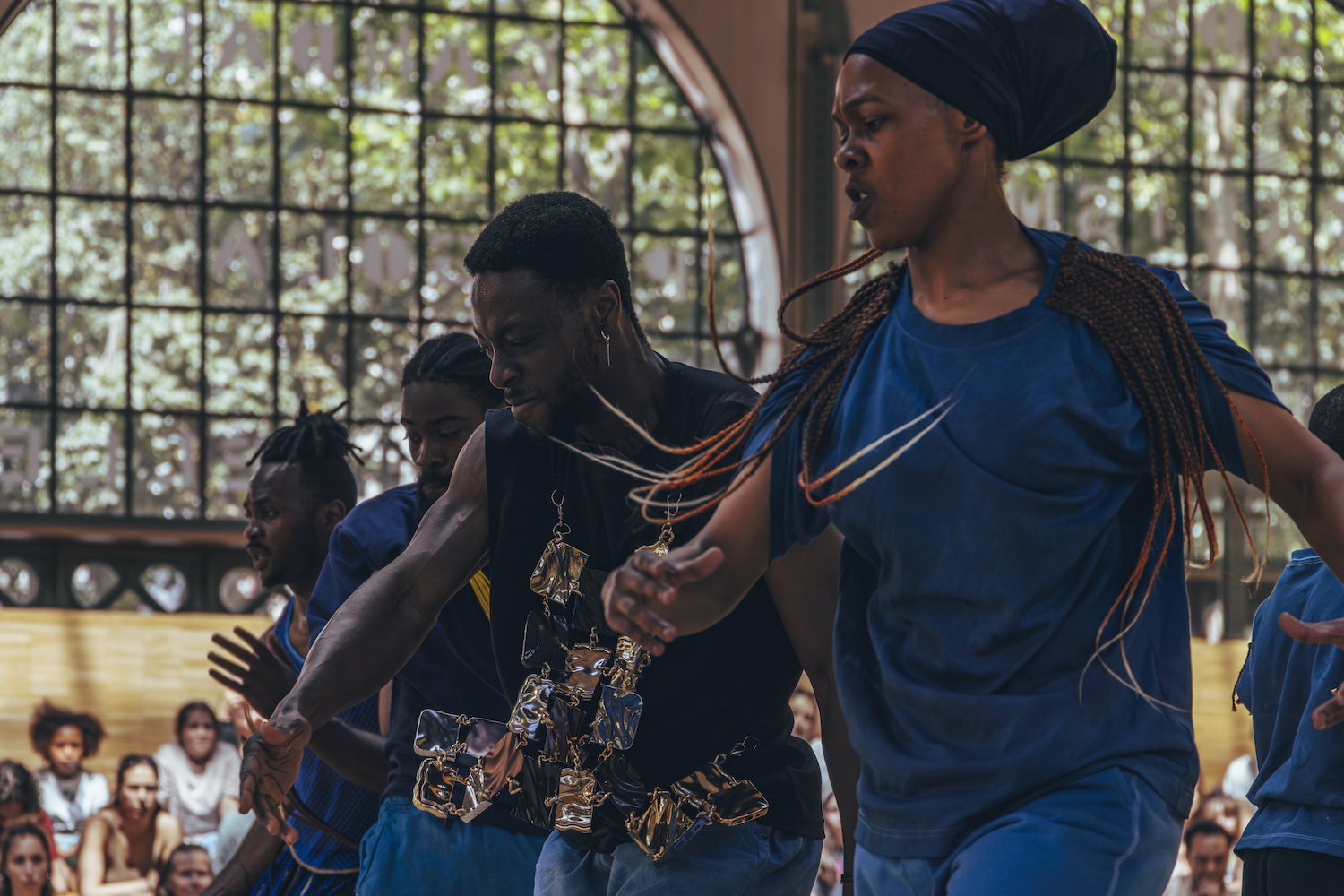
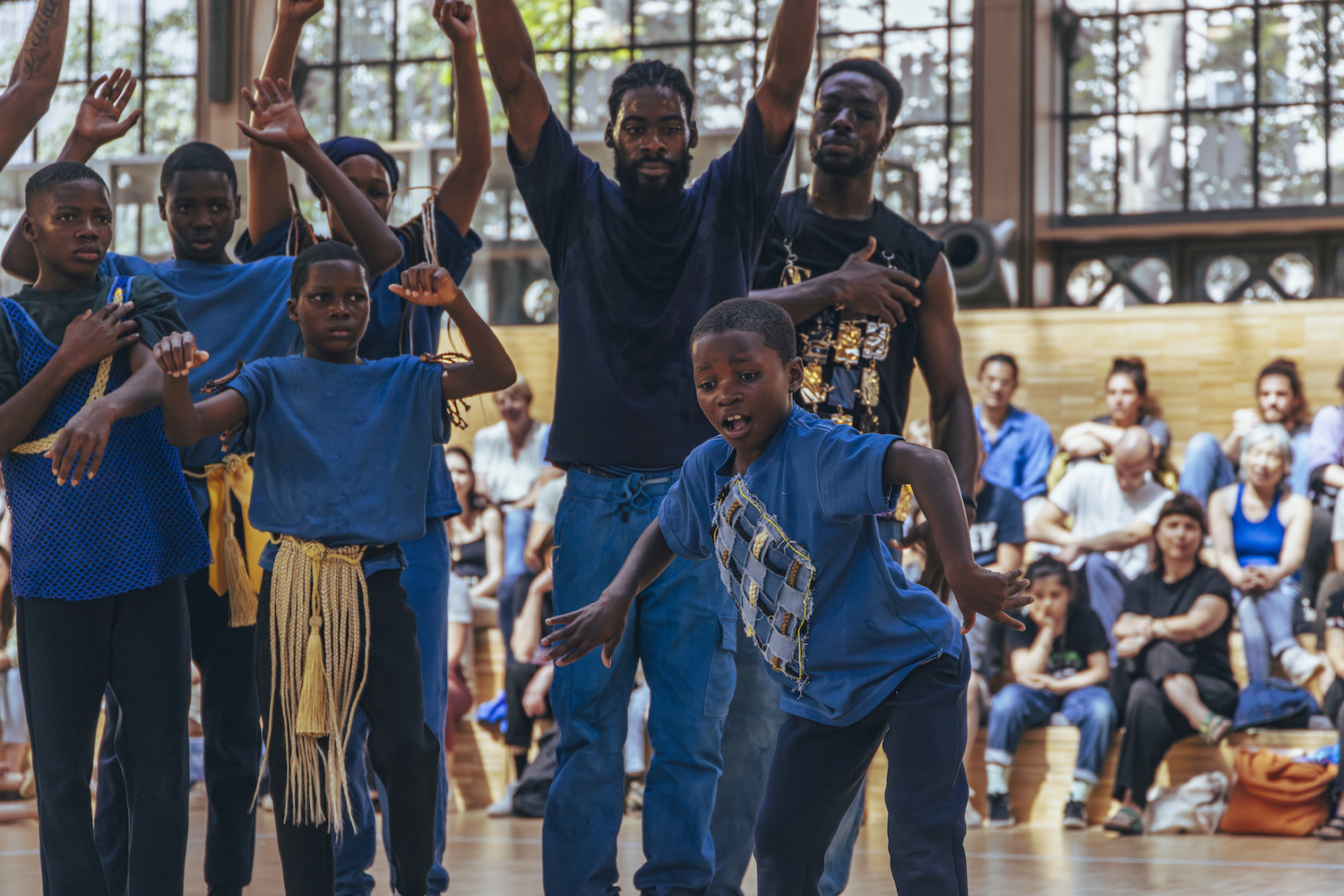
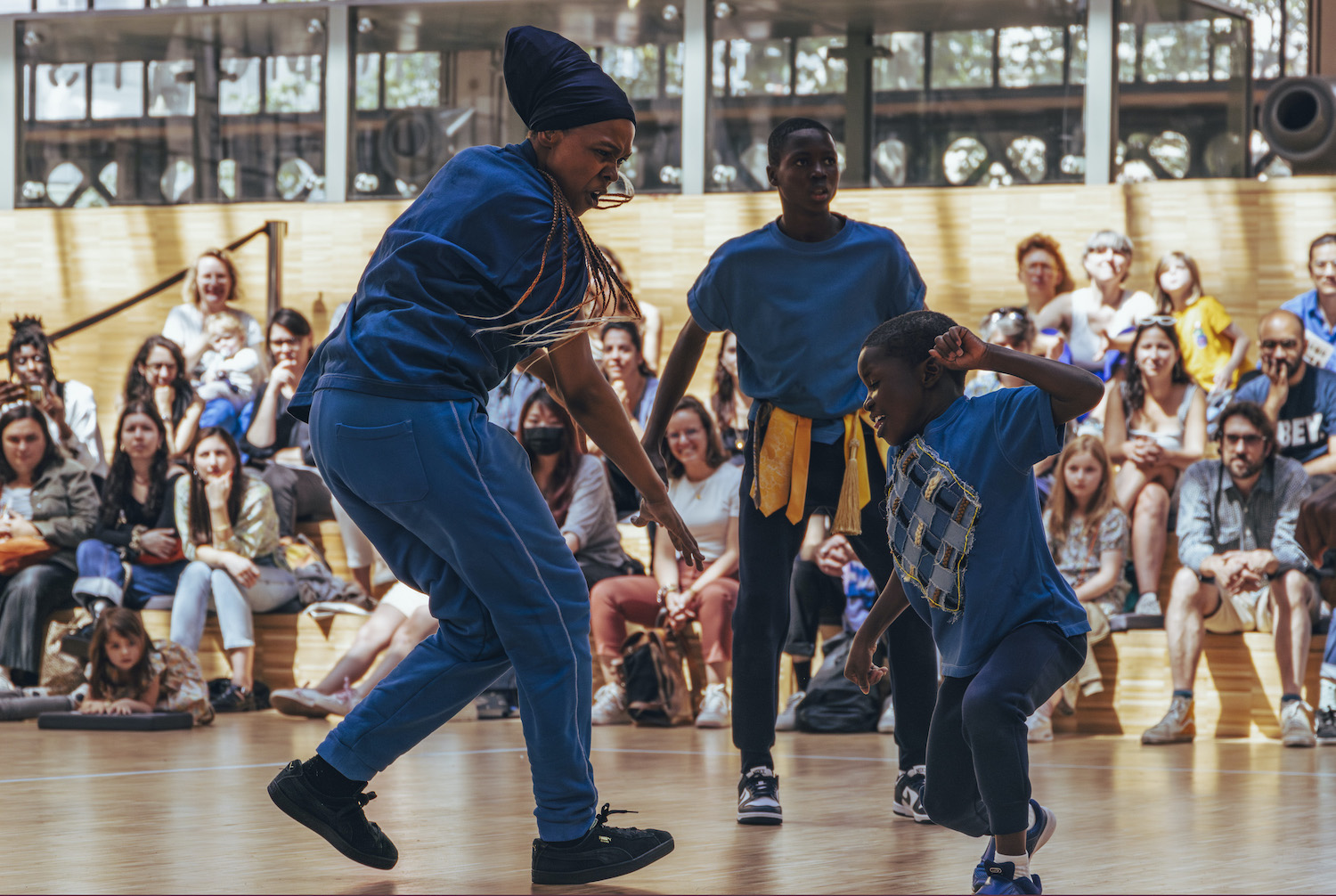
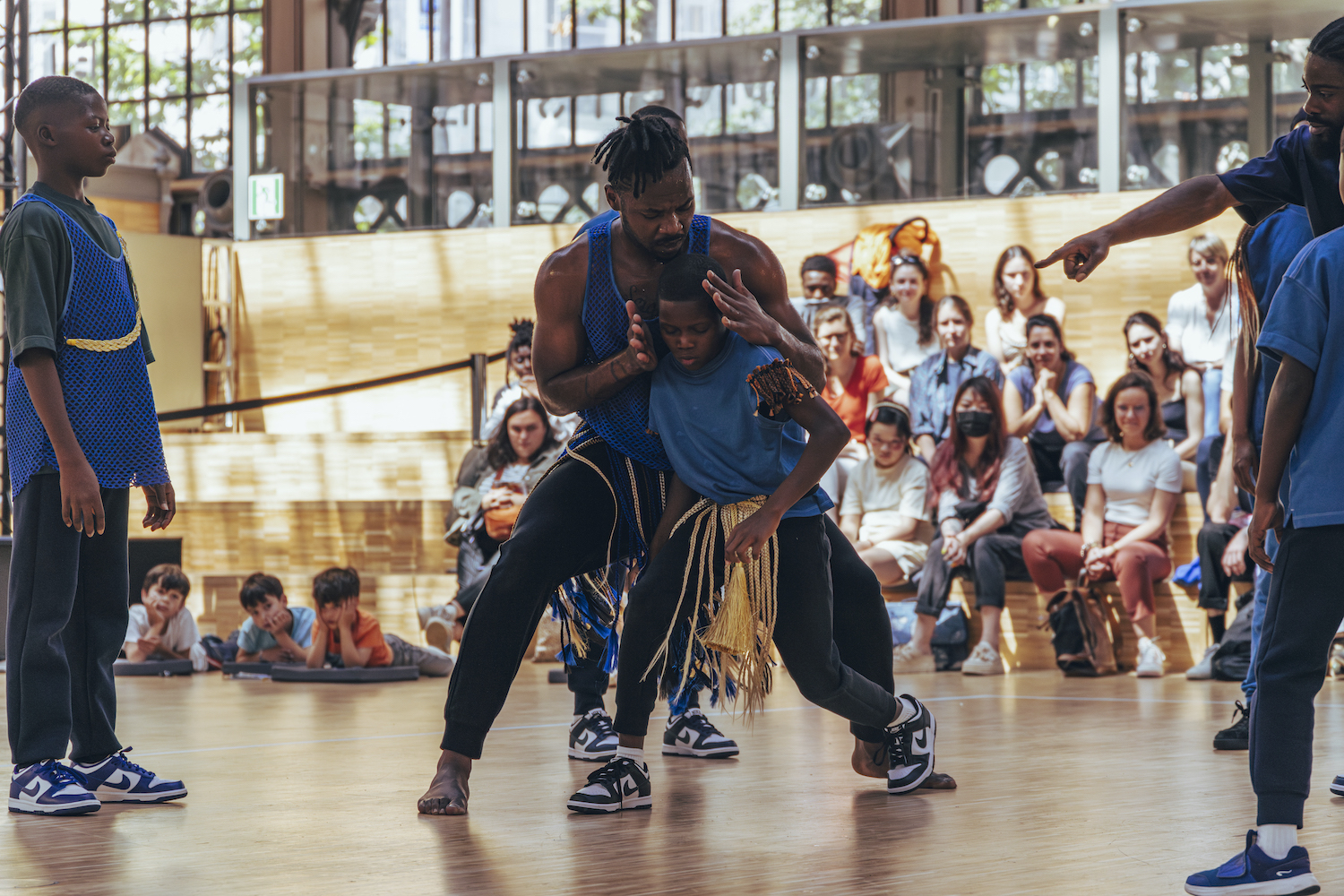
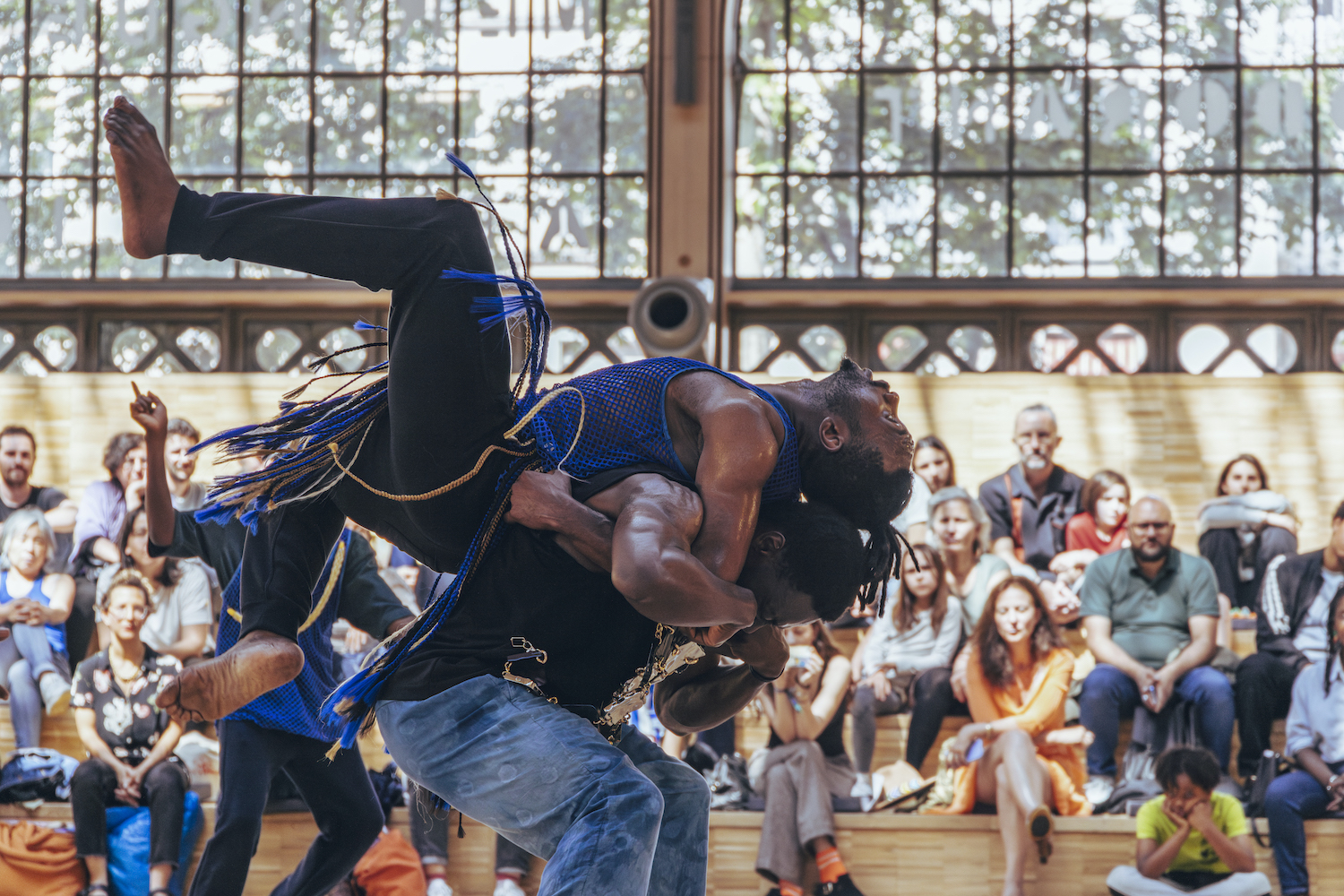
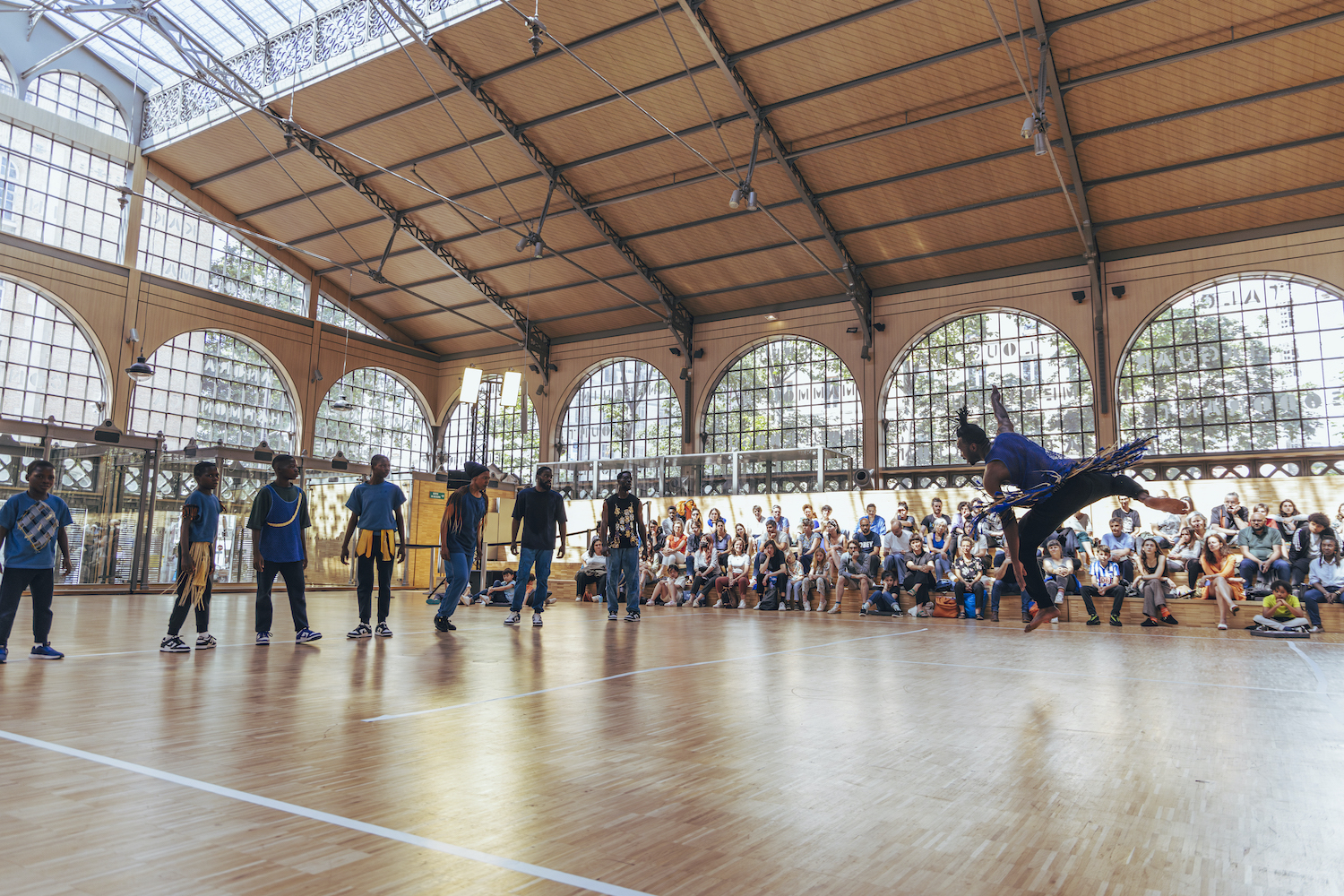
PRODUCTION
Production: Le Carreau du Temple Supported by la Ville de Paris A collaboration between Le Carreau du Temple and Paris 2024, as part of the Paris 2024 Cultural Olympiad Behind the Line will be on tour for the 2024/2025 season and for the next seasons (executive production and touring by Le Carreau du Temple).